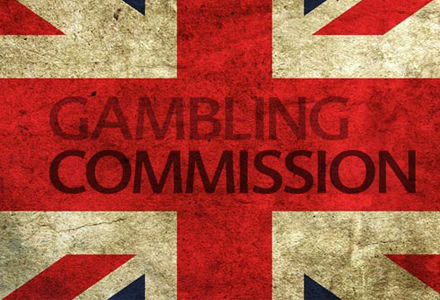Online gambling is becoming an increasingly noticeable issue for governments across Europe. Following on from the inclusion of the UK Point of Consumption Tax in the Queen’s speech notes and the proposed liberalisation of online gambling in The Netherlands, the subject is becoming impossible for even the biggest fence sitters in governments across the continent to ignore.
Consumption Tax in the Queen’s speech notes and the proposed liberalisation of online gambling in The Netherlands, the subject is becoming impossible for even the biggest fence sitters in governments across the continent to ignore.
Last week the topic was even breached in the European parliament where calls for stronger consumer protection were made by Sirpa Pietikainen, the group spokeswoman on online gambling. A report was accepted on the subject in which these calls were recommended by the Committee on Internal Market and Consumer Protection (IMCO).
Speaking after the vote, Pietikainen said in a statement that “online gambling may involve a greater risk of addiction than traditional offline gambling”. She called for self-exclusion and betting limit information to be shared across all licensed gambling operators. Both are sensible suggestions and already done in part but Pietikainen insisted that as gambling is of a special nature, it requires special attention.
“This can be achieved by respecting the principle of subsidiarity where Member States have the right to determine how the offer of online gambling services is organised and regulated. Simultaneously, common principles of consumer protection have to be improved,” she explained.
The European Lotteries have since spoken out in favour about the adoption of the report by the IMCO and emphasised the need to keep member states (i.e. EU countries) “in the driver seat”.
For so long these discussions regarding online gambling never took place in any parliament – be it national or multi-national. Of course, those were the years when the iGaming industry was growing at its fastest pace. Now contributing a significant amount to the $430 billion global gambling revenues we can’t expect the industry to continue to be ignored by politicians but they would do well to remember that those within the industry got it there in the first place – without the need for government regulations.
This was made possible by independent standards authorities who took it upon themselves to provide a set of standards for online gambling operators to adhere to. While there was no obligation upon operators to do so, the adoption of these standards was carried out to an extent that allowed iGaming to grow by an average of 23% per year since 2003.
So now that governments have seen the importance of iGaming and are setting about developing their own framework for consumer protection and fraud protection, where does that leave the independent authorities who have done such a good job up until now?
 The most visible independent iGaming auditor, particularly in Europe where the lion’s share of regulatory changes are taking place, has been eCogra since its creation in 2003. Initially the company took it upon itself to “set and improve operational standards and player safety”.
The most visible independent iGaming auditor, particularly in Europe where the lion’s share of regulatory changes are taking place, has been eCogra since its creation in 2003. Initially the company took it upon itself to “set and improve operational standards and player safety”.
Other auditors such as TST have been able to build their companies on the back of success in this area but if you look at the bottom of most of the biggest European operators it’s the eCogra logo that you’re most likely to see. But this very seal of approval is becoming increasingly unimportant to the operators that once worked hard to gain it.
Rather than this meaning the end of their work in the industry, eCogra have been able to change their approach and it seems to be working well for them. They announced last week that their almost doubling their workforce while taking on new clients across Europe such as Paf and Net Entertainment. The work that they’re doing for these clients includes testing, monitoring and the all-important ‘prepatory certification work in numerous regulated markets’.
So rather than just awarding a seal of approval for online casinos, eCogra are now playing a large part in helping both operators and software companies fit into jurisdictional frameworks. They’re even working with jurisdictions by advising them on what their regulatory framework should look like – a major advantage to the clients who they show how to fit into it.
It appears that the company has kept abreast of changes taking place in the industry and a role in a different environment has been plotted. Speaking at the beginning of 2012, former CEO Andrew Beveridge explained how eCogra’s workload was changing.
“In the past we saw a lot more people willing to submit themselves for self-regulation but now everybody’s inundated with the new regulated markets’ requirements,” he said.
“It’s pretty tough to go after Spain and Italy and get certified there and then subject yourself to self-regulation so the demand for self-regulation is decreasing.
“Having said that, all of the guys that we’ve had previously certified with self-regulation are continuing to do so. The growth of our business is more where we are certifying operators to work in newly regulated jurisdictions.”
So while it has taken a bit of adapting, eCogra are perhaps in an even stronger position than they once were. Rather than being an optional extra for operators and software providers, they’re now a necessity for many in order to gain the licences needed in order to succeed.






